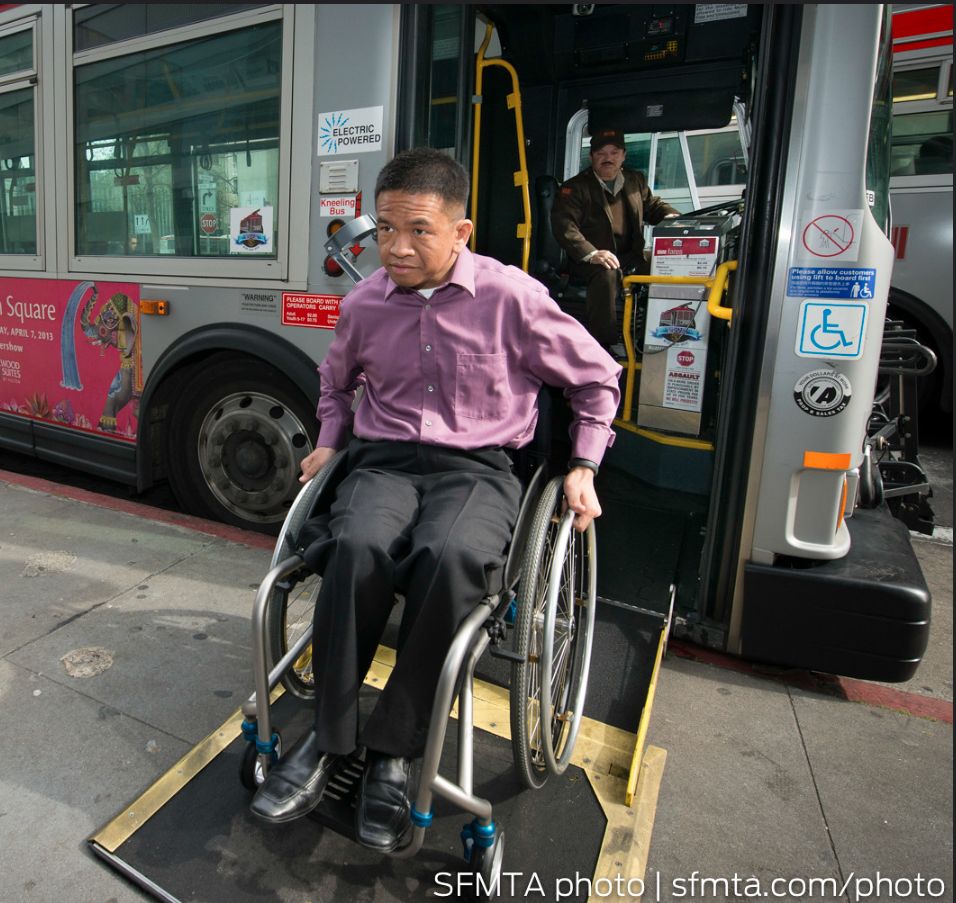(This is the fourth in a series of posts by Hayden AI, one of our advertising sponsors. Hayden AI is a global leader in smart enforcement technologies powered by artificial intelligence. Find out more about how their digital traffic enforcement platform increases safety, efficiency, and sustainability at Hayden.ai. Read the rest of the series, here.)
Public transit is essential to people in California - from critical Wheelchair Accessible Vehicles (WAV) service to everyday transit buses and trains. But across the state, disabled Californians face unnecessary and preventable impediments to safely board or exit transit buses.
Why? Illegal parking at bus stops. While parking at a bus stop might be convenient for drivers, it can prohibit people from safely accessing transit. When a bus isn’t able to pull up to the curb, it creates a number of hazards for all Californians, but especially for the disabled community. An illegally parked car may block the curb cut or may prevent the transit bus from deploying its ADA-required ramp for wheelchair access. With a parked car in the way, passengers can be forced to walk into the street to board, putting them at unnecessary risk. For passengers who have a disability, this can be impossible.
Too often, these parking violations are not enforced, or enforcement is not frequent enough to change the behavior. However, thanks to the California legislature, there’s a new tool to prevent this problem. Unfortunately many transit agencies in California have yet to take advantage of it.
In 2021, California enacted A.B. 917, a law that allows transit agencies to install devices in buses that will automatically ticket vehicles that are illegally parked at a bus stop.
Drivers must learn that illegally parking at bus stops is a serious offense with significant consequences. And it is a problem that transit agencies must tackle and adopt measures to prevent.
People with disabilities are more likely than most to be reliant on transit. According to the Bureau of Transportation Statistics, 12 percent of workers with disabilities between the ages of 18 to 64 do not have access to a vehicle. That number rises to 20 percent of disabled people who don’t work.
“While there are disabled people who can drive, many disabled folks can’t, or can’t afford to,” Anna Zivarts, director of the Disability Mobility Initiative, told Streetsblog USA. “Driving isn’t an option for many blind or low-vision folks, or folks with intellectual disabilities. Many folks with chronic health conditions like epilepsy can’t drive, and people with other physical disabilities often can’t drive, or can’t afford a modified vehicle.”
If utilized, AB 917 will help transit agencies ensure that no rider is left behind – and that disabled people have equal access to jobs, schools, recreation, and other opportunities as those without travel-limiting disabilities.
Mobility is a right for a reason: access to transportation is essential to economic prosperity and quality of life. There are 25.5 million Americans with travel-limiting disabilities. Unblocking bus stops unlocks opportunity and mobility.






